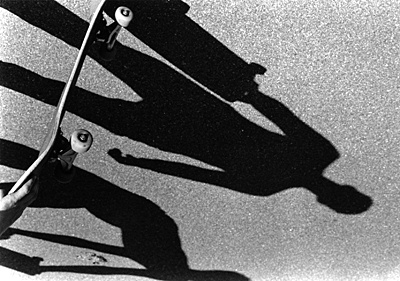All Nonfiction
- Bullying
- Books
- Academic
- Author Interviews
- Celebrity interviews
- College Articles
- College Essays
- Educator of the Year
- Heroes
- Interviews
- Memoir
- Personal Experience
- Sports
- Travel & Culture
All Opinions
- Bullying
- Current Events / Politics
- Discrimination
- Drugs / Alcohol / Smoking
- Entertainment / Celebrities
- Environment
- Love / Relationships
- Movies / Music / TV
- Pop Culture / Trends
- School / College
- Social Issues / Civics
- Spirituality / Religion
- Sports / Hobbies
All Hot Topics
- Bullying
- Community Service
- Environment
- Health
- Letters to the Editor
- Pride & Prejudice
- What Matters
- Back
Summer Guide
- Program Links
- Program Reviews
- Back
College Guide
- College Links
- College Reviews
- College Essays
- College Articles
- Back
The Word
“Hey nigga!” Heads turn and mouths slowly drop open. Did he really just say that? You turn to see none other than your best friend yelling towards you. Whatever happened to the normal “hello” that he used to say? Do you quietly let the word slip past you as if nothing has happened, or do you confront your friend about using that “N-word?” The slang word nigga, derived from the word “nigger”, is probably one of the most offensive words in the English language. This word is not okay to use. The dictionary points out that the word is a derogatory and racist name for an African-American person. The “N-word” is being greatly misused in today’s society and its true meaning needs to be communicated.
The first time the N-word was ever used was in the Colonial Era of 1619. It started off as a common ethnic slur that John Rolfe, an English settler, used to describe African slaves shipped to the Virginia colony. Some slaves would even call each other the word. It comes from the Latin adjective niger, meaning the color black. At that time the word was not always considered derogatory, as it was often seen without a negative connotation. As the 1800s rolled along by, the word began to become unpopular and unused and in the late 1960s, during the Black Civil Rights Movement, N----- was recognized as a legitimate racist word.
Today the word has become a bit of cool slang that can be used in place of a noun or name. One of the more popular meanings I have heard is to call someone a “friend” or “brother.” But this word should not be thrown around so easily. Unfortunately, it has not succumbed to only one culture because I have begun to hear the “N-word” being used by anyone from any kind of race. It is a touchy subject that people seem to look past and even joke around with. The simple word has begun much of a controversy. How can we as humans, crush the continuation of using such a word when United States has the laws of “freedom of speech” or “freedom of expression”? Many complain of a double standard or simply racism but it seems as if people are using the distasteful “N-word” to maintain the racial separation of events that happened over hundreds of years ago.
I have heard people use the N-word before. When we are with a close group of friends, and no one seems to be listening, what is stopping us from saying such a word in plain fun or all seriousness? My friends and I do not use the word but many groups of people do. One evening I went to the mall with an African-American friend of mine and as we were walking along the stores, a group of loud teens walked past us. We heard one of them use the N-word. I know it was not towards us directly but my friend felt offended and I could not help but feel offended too. The word should not be used at all but some African-Americans seem to accept the word and allow their friends to use it as so. How can the N-word permanently make a mark in the world as an offensive, racist slur, which should never be used, if many people allow the word to be said? We should embrace the fact that slavery is over and that “all men are created equal.” In an odd way, I think society has changed the N-word and placed control in the tender hands of the one race feeling the heaviest impact.

Similar Articles
JOIN THE DISCUSSION
This article has 0 comments.
